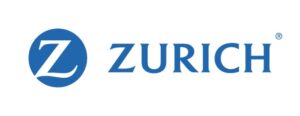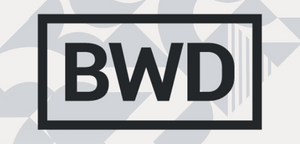Cat Conquest, an Actuarial & Risk Intern at Standard Life tells us all about her experience to give insight into what an actuarial internship entails…
I have always enjoyed asking ‘how?’ and ‘why?’. At university, I consistently preferred the applied side of the subject, and sought a career where I would be able to develop my analytical, problem solving skills to produce real-world and customer outcomes. As I began to research and refine my career aspirations, the actuarial profession naturally presented itself as a way of combining these qualities into a career. Next, I needed some work experience.
Why did you choose to do an internship?
An internship is a valuable way of gauging what you would like from a career, the tasks you enjoy and those where you have room to develop. Having successfully navigated the application process, you are trusted with real, meaningful projects which reflect business needs.
Being part of a structured scheme at Standard Life also provided the benefits of an internship cohort of like-minded peers, professional development opportunities and organised social events. Structured personal development plans aid in getting the most out of your short time in the office, with continuous input from both your manager and stream head.
What were your main duties?

I interned in the Financial and Insurance Risk team, where my main project involved collating a group-wide view of a stress testing exercise called Reverse Stress Testing. Collaboration with colleagues across the business, report-writing and excel were all vital skills involved in my day to day tasks. This provided me with both a holistic view of the business structure and immersed me in corporate attitudes to risk. Given the overarching theme of risk management, it also offered an insight into one of the possible actuarial specialisms – Enterprise Risk Management.
What attracted you to the role as an Actuarial & Risk Intern at Standard Life?
Throughout the application process, I evaluated what I was looking for in both the role itself and my employer:
- Role – I wanted a role that would be challenging, and combine my inquisitive nature with the academic rigour of my maths degree.
- Company culture – I was very drawn to a company with such a large, collegiate culture. Clear and specific corporate and social responsibility initiatives also demonstrated that Standard Life conducted business in a grounded, conscientious manner.
- Investment in individuals – joining a company with a nurturing environment was particularly important to me. I felt Standard Life demonstrated this through the various networks such as the Women’s Development Network, the ‘buddy’ system and multiple coaching networks.
- Reviews and research – I researched experiences of previous interns on the same scheme to gain a feel for the type of work and responsibilities they were given. Although you are not expected to know the exact nature of the work when applying, having an idea of what previous interns have done, or what a typical day may look like can be extremely advantageous in demonstrating a diligent review of the job role. For example, at Standard Life, I liked that interns were often given specific projects which lasted the majority of their placement. This permits a sense of ownership and responsibility, as well as exposure to the full end-to-end process of project organisation.
- Graduate role opportunity – of course, as well as being a learning experience, internships are important as they can provide the opportunity to gain a full time role for after graduation. In this way, the internship is a two-way interview.
- Location – Edinburgh is a beautiful city! Attractions such as the Fringe and Arthur’s Seat are great fun when out of the office. If you’re weighing up the pros and cons of a possible job afterwards, it’s important to consider external factors such as location too.
What were the most important things you learnt from the internship?
- Insight into an actuarial career – embarking upon life as a student actuary is a big commitment, so having the opportunity to speak to students about the study package, work/life/study balance, graduate scheme and career beyond was invaluable. We were given multiple opportunities to speak to actuaries in traditional and non-traditional roles alike, and these discussions were extremely helpful in understanding my future career opportunities. Speak to as many people as you can – across different roles, departments and professions within the company. It all helps to build up a picture of the company or industry you are in and the colleagues that surround you.
- Day to day duties – excusing the cliché, skills such as time-management, prioritisation and the simple deconstruction of complex concepts for explanation to others are vital skills which you learn on-the-job. Often in actuarial work, you are immersed in very specific, specialised knowledge, data and processes, yet you might have stakeholders who do not work as closely with the detail. In this way, the ability to clarify this work to others is incredibly important.
- Technical and soft skills – often, the best way to learn is by doing. As such, when completing tasks, you are supported through picking up the technical skills required – be it excel, report-writing or specialist software. Having come from a very mathematical background, I knew it was really important that I worked on these skills, where others with e.g. Finance or Actuarial Science degrees may have been more adept. At the end of the internship, each intern presented back on their individual experience. Presenting to your own team on what you have done with them will be the biggest test of your understanding!
Do you have any advice for someone seeking an internship?
- Do your research – in the interview it is paramount that you can demonstrate both motivation in applying for the role and interest in the specific company. Who are their main competitors? What are their main products? Have they been in the news recently? What are they key challenges in their industry currently?
- Ask yourself ‘how do I fit this role?’ – demonstrating how previous work experience, positions held in sports teams and societies or work you have completed at university all contribute to establishing your fit for the role.
- Look beyond the job role – does the company have projects, values and causes which align with yours?





